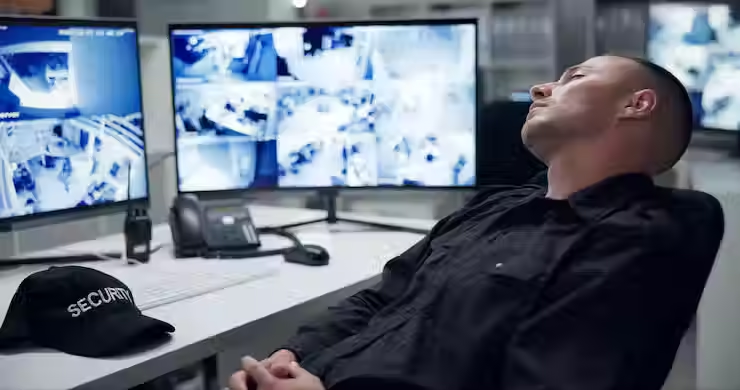Complacency: The Hidden Risk in Private Security
- James Consulting

- Jul 6
- 3 min read
In the private security industry, professionalism is often measured by presence, preparedness, and prevention. Whether you’re guarding a retail site, working the door at a busy venue, patrolling a business park, or monitoring from a control room, your role is built on vigilance.
But over time, a quiet threat can creep in, not from outside, but from within:
complacency. It doesn’t look like a threat. In fact, it often disguises itself as experience or confidence. But if left unchecked, it can leave gaps in your coverage, weaken your response, and ultimately compromise safety.

How Complacency Creeps In
Complacency doesn’t usually happen overnight. It builds slowly through routine, repetition, and false confidence. You’ve done this shift a hundred times. You know the site. You know the regulars. The risk feels low.
That’s when shortcuts start to appear:
Missing a patrol check “just this once.”
Failing to challenge a familiar face who bypasses access control.
Clock-watching rather than scanning the environment.
Letting a minor incident slide because “it’s probably nothing.”
Each of these actions might seem small, but together they create a culture of carelessness, one that can lead to serious consequences.
Why It’s So Dangerous
Security incidents often come when you least expect them. It’s easy to remain switched on when something feels wrong, but true professionalism is staying alert even when it doesn’t.
The danger is that complacency becomes invisible. You don’t realise you’ve dropped your standards until something goes wrong. By then, it’s too late.
In security, you don’t get judged by how many quiet shifts you’ve had, you get judged by how you respond when something goes wrong. And your response starts long before the incident: it starts with mindset.

Common Causes of Complacency in Security Roles
Familiar environments: You know the site so well that you stop actively scanning.
Routine repetition: Same shift, same people, same outcomes, boredom sets in.
Overconfidence: Thinking “it won’t happen here” is the first step to missing a real threat.
Fatigue and stress: Long hours and low morale reduce alertness.
Lack of supervision or feedback: If no one checks your work, it’s easy to stop caring.
How to Stay Sharp
Start Every Shift Fresh
No matter how familiar the site is, reset your mental state each time you clock in. Check the logbook. Brief yourself on previous shifts. Ask: What’s different today?
Stick to the assignment instructions, No Exceptions
Routine creates the illusion that it’s safe to bend the rules. Don’t. Follow site procedures like it’s your first day, because that’s how you maintain standards.
Use Downtime to Train Your Mind
During quiet periods, don’t zone out. Mentally rehearse emergency scenarios. Ask yourself: If something kicked off right now, what would I do?
Vary Your Patrols and Checks
Predictable routines can be exploited. Switch up your routes, timing, and habits. Even if the threat seems low, unpredictability keeps you in control.
5.Keep Each Other Accountable
Encourage a team culture where calling out lazy habits is normal and respected. If a colleague cuts corners, speak up. You might be the last line of defence before something slips through the cracks.
Reflect After Every Shift
Don’t just sign out and walk away. Ask yourself: What went well today? What didn’t? What would I do differently next time? Self-reflection builds self-awareness, the antidote to complacency.

Leadership Responsibility
Supervisors and team leaders play a huge role in combating complacency. Don’t just manage rotas, manage standards. Conduct regular performance checks, praise good practice, and provide feedback when standards drop.
If the team sees that leadership accepts laziness, it becomes the norm. But when leaders model vigilance and discipline, it sets a tone of pride and professionalism.
Final Word: Security Means Staying Ready
Security isn’t just about responding to threats, it’s about preventing them. That prevention depends on alert eyes, disciplined actions, and a professional mindset.
It’s easy to fall into the trap of “nothing ever happens here.” Until it does.
So ask yourself: are you really watching, or are you just looking? Are you checking that door because it’s on your list, or because someone might use it?
Complacency has no place in professional security. Stay sharp. Stay present. Stay proud of the role you play.



Comments